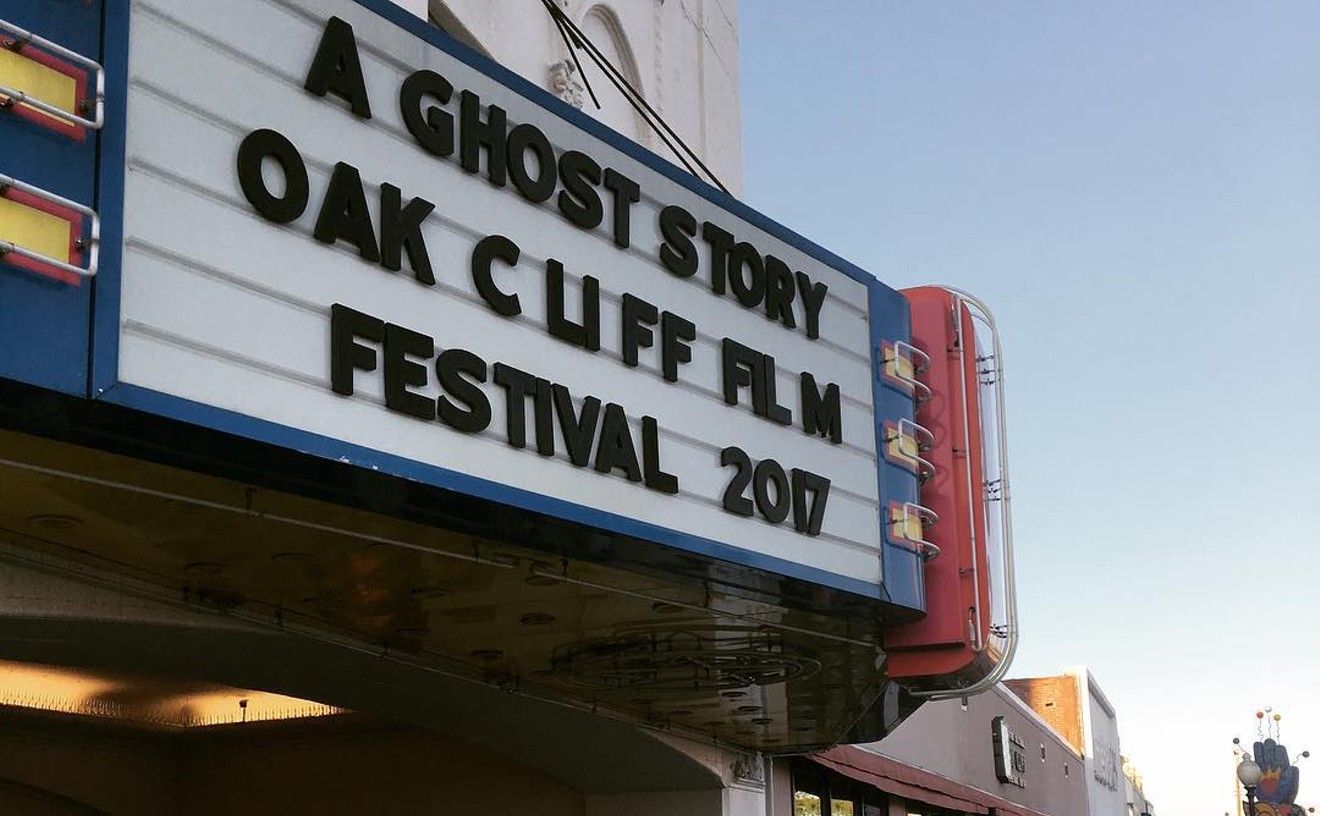Austin director Andrew Bujalski's latest film, Computer Chess, is a radical departure from his previous works, Mutual Appreciation, Funny Ha Ha and Beeswax. It centers around a computer chess tournament at a hotel in 1980, and was filmed on black and white Sony AVC-3260 video cameras from 1968, giving it a spectral veneer. When the film screened in March at SXSW, Bujalski referenced William Eggleston's video work around Memphis in the '70s as an influence.
The script was heavily improvised by a cast that features actors, computer programmers and, for good measure, a film critic (Gerald Peary). They wander the halls of the hotel, trying to keep their machines from malfunctioning while pondering bigger philosophical questions. For all its ancient tech-speak, there is something profound about the film, and the different rooms these people inhabit, which mirror our own contemporary online lives.
As part of this weekend's Oak Cliff Film Festival, UT Dallas chess program director James Stallings will be at Texas Theatre on Saturday, after the 3:30 p.m. screening of Computer Chess, along with chess master John Jacobs, and UTD players Marko Zivanic and Valentin Yotov. They'll talk about the film and chess in general, and there will be matches in the lobby before and after the screening. What did Stallings think of Bujalski's film?
"I felt like I was reading a short story by [Jorge Luis] Borges," he laughs. "It seems so real -- not surreal -- like a vivid portrayal of one of his short stories. I think it was extremely well done."
Stallings recalls playing a computer chess program much like the one in the film, in 1982, at the University of Illinois.
"One day they told me I had to go to the library, they had a program that played chess called PLATO. So I played it, and 14 moves later I checkmated. I just sort of shook my head and said, 'These computers aren't ever going to match up.'
"Now we have robots playing humans in blitz chess," Stallings continues. "The robot arm is in our physical world, and they have the precision to make the move, and tap the clock. That was another step, getting them [physically] into our world."
There's a scene in Computer Chess where Wiley Wiggins, who plays programmer Martin Beuscher, has a back and forth with his computer, and gets a glimpse of what might be its soul. It's one of the film's most striking exchanges, and though played with a certain amount of humor, it points to a more spiritual dilemma with technology. Stallings says it's an homage to Kubrick's 2001: A Space Odyssey.
John Jacobs is a Dallas-based chess master, and the Executive VP of the Richardson Economic Development Partnership. When we spoke, he had just watched the film the night before.
"I don't go to that many art movies, so I was expecting to see some action heroes," he laughs. "I have a 25-year-old son, and I thought it wouldn't keep his attention for more than 30 seconds, but it did. The characters were interesting, and it did a good job of bringing back that era, especially those old computers. My goodness. They must be museum pieces." (There's some truth to that: Many of the computers came from Austin's Goodwill Computer Museum.)
In the mid-'70s, after graduating from UT and returning to Dallas, Jacobs got a call from Alan Mead, who, along with partner Stan Partee, ran the start-up Applied Concepts, originally based in Garland. They were looking for a product to sell, and developed a chess-playing program with British programmer David Lindsay, called Boris, which they introduced in 1978.
"They wanted me to play games against it, and report back to the programmers about its weaknesses, so they could adjust the numbers and evaluate material or pieces," Jacobs says. "So I did. And even then, it was calculating technical variations, but not visualizing the ideal positions. The real fundamental problem in that era was that people who knew software programing didn't know much about chess, and chess players didn't know about software, and you saw that in the movie."
Echoing Kubrick's HAL 9000 computer, one computer chess website relates that Boris even had responses to its opponent's moves, such as "I expected that."
"I'd forgotten all about the running commentary," Jacobs responds. "It was an annoyance for me, since I was trying to get the bag of bolts to play better chess."
Jacobs says the proliferation of strong players has much to do with utilizing computers to help them. But as the idea of singularity approaches, and computer intelligence inches closer to human, the idea that one day every kid might have their own chess-playing robot isn't that far-fetched.
"Humans use abstract concepts, and computers are calculating all the time, so many moves ahead. So it's a battle against the more conceptual and spiritual concepts of the human, and the raw calculating ability of the computer."










